Neurosurgery in Germany
Here you will find most technologically advanced neurosurgical hospitals in Germany
The selection of doctors and clinics is carried out on the basis of annual qualification reports. The main selection criterion is the number of operations or procedures performed. It takes into account experience, reputation in the medical society, the availability of quality certificates and high specialization in a certain field.
Focus of treatment:
- Acoustic neuroma
- Angioma of brain
- Arteriovenous malformation AVM
- Av-malformation of brain
- Benign Brain Tumor
- Brain Aneurysm
- Brain astrocytoma
- Brain cavernoma
- Brain hemangioma
- Brain metastases
- Brain tumor of unknown etiology
- Brain vascular tumors
- Cervical dystonia
- Cervical spinal disc herniation
- Cervical spinal stenosis
- Cranial bone defects
- Ependymoblastoma
- Ependymoma
- Ependymoma
- Facial nerve neuroma (schwannoma)
- Glioblastoma
- Hydrocephalus
- Internal carotid artery (ICA) aneurysm
- Intracranial germinoma
- Intramedullary spinal cord hematoma
- Lumbar spinal disc herniation
- Lumbar spinal stenosis
- Medulloblastoma
- Medulloepithelioma
- Meningioma of brain
- Moyamoya disease
- Myelomaeningocele
- Neuroblastoma (ganglioneuroblastoma)
- Pituitary adenoma
- Skull base chordoma
- Spastic syndrome
- Spinal astrocytoma
- Spinal cord empyema
- Spinal cord lipoma
- Spinal cord malignant tumor
- Spinal meningioma
- Spinal neurinoma
- Subdural brain hematoma
- Subdural empyema
- Trigeminal neuralgia Show more

Department of Neurosurgery and Spinal Surgery
The Department of Neurosurgery and Spinal Surgery offers the full range of modern surgical procedures for patients with diseases of the brain, spinal cord, spine, and peripheral nervous system. The department has state-of-the-art equipment, including navigation systems, monitoring devices, surgical microscopes, intraoperative X-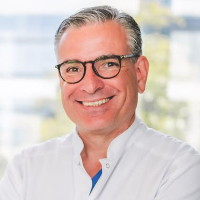
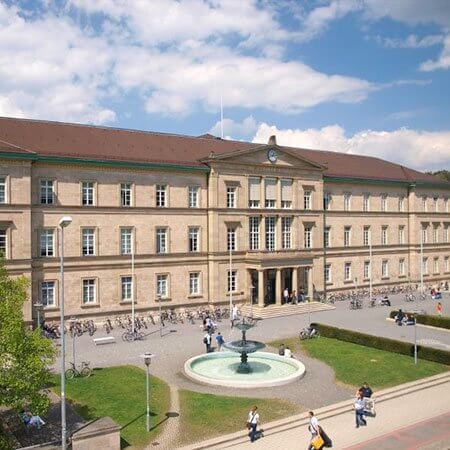
Department of Adult and Pediatric Neurosurgery
The Department of Adult and Pediatric Neurosurgery offers the diagnostics and surgical treatment of all diseases of the nervous system. The department has the expert competence in the field of complex neurosurgical interventions and is one of the leading surgery centers for skull basis, pituitary, and peripheral nerve interventi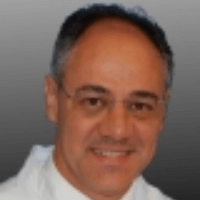



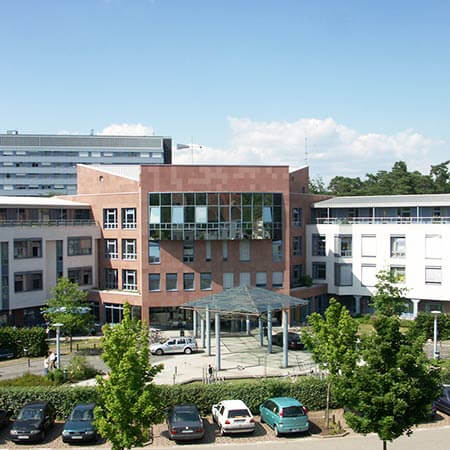
Department of Adult and Pediatric Neurosurgery, Spinal Surgery
The Department of Adult and Pediatric Neurosurgery, Spinal Surgery offers the full range of services in the surgical treatment of diseases of the central and peripheral nervous system. Of particular interest is the treatment of brain and spinal cord tumors, spinal surgery for herniated discs, spinal stenosis, and degenerative ch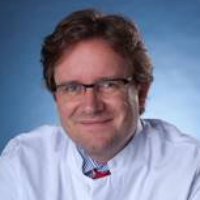



Department of Adult and Pediatric Neurosurgery
The Department of Adult and Pediatric Neurosurgery offers the full range of accurate diagnostics and surgical treatment of diseases of the central and peripheral nervous system. The department's surgeons annually perform over 5,000 surgical interventions, which indicates their high professionalism and tremendous experience.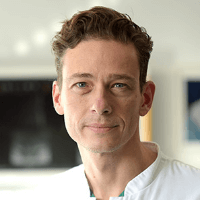





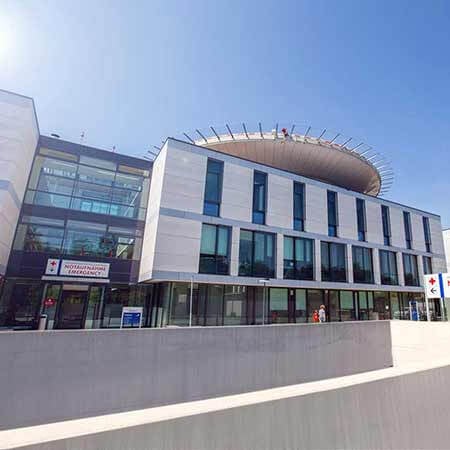
Department of Adult and Pediatric Neurosurgery
The Department of Adult and Pediatric Neurosurgery offers the full range of surgical treatment of diseases of the brain, spine, spinal cord and nerves in adults and children. The department keeps pace with new trends in medicine, as well as contributes significantly to their development. Therefore, the most modern diagnostic and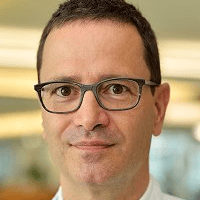

Department of Adult and Pediatric Neurosurgery
According to the Focus magazine, the Department of Adult and Pediatric Neurosurgery ranks among the top German medical facilities specializing in the surgical treatment of brain tumors! The department offers the full range of diagnostics and surgical treatment of diseases of the central and peripheral nervous system. A specially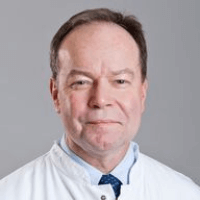





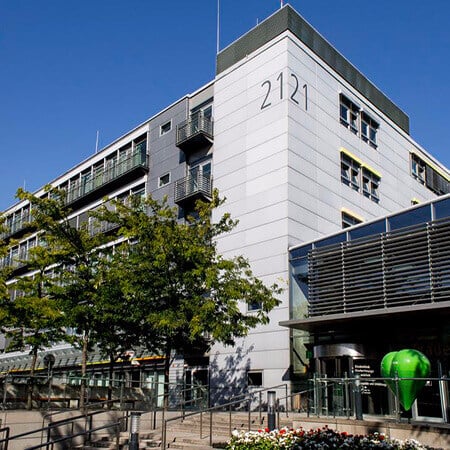
Department of Adult and Pediatric Neurosurgery, Epilepsy Surgery, Spinal Surgery
The Department of Adult and Pediatric Neurosurgery, Epilepsy Surgery, Spinal Surgery offers the full range of diagnostics and surgical treatment of diseases of the brain, spinal cord and peripheral nerves at the highest international level of modern medicine. The department has four high-tech operating rooms, in which more than



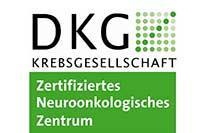

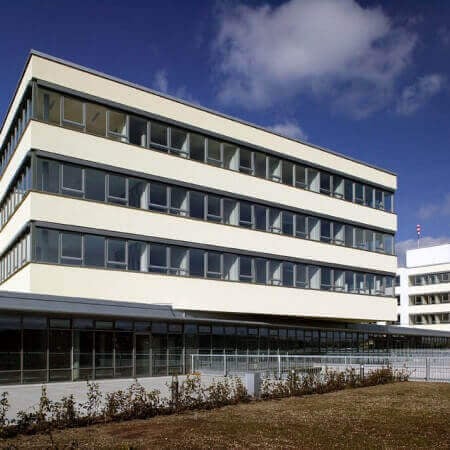
Department of Adult and Pediatric Neurosurgery
The Department of Adult and Pediatric Neurosurgery offers the diagnostics and treatment of the entire spectrum of neurosurgical diseases. The department specializes in the treatment of brain tumors, vascular diseases and intracerebral hemorrhages, spinal diseases, deep brain stimulation, etc. Special competence lies in the field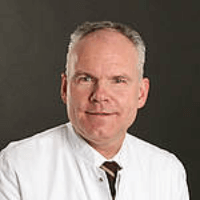





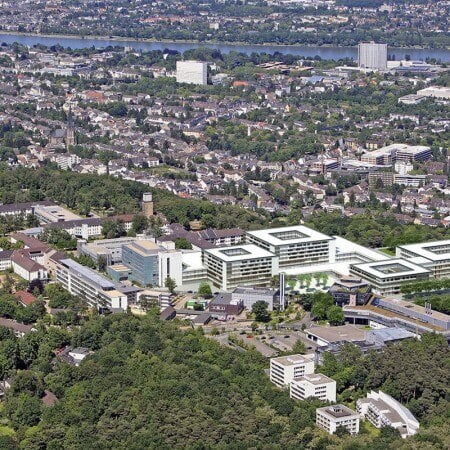
Department of Neurosurgery
The Department of Neurosurgery offers the full range of surgical treatment of diseases of the nervous system and belongs to the largest medical facilities of this kind at the national level. The department has 4 state-of-art operating rooms where more than 2,700 interventions are performed annually. It has the progressive surgic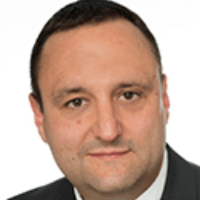






Department of Adult and Pediatric Neurosurgery
The Department of Adult and Pediatric Neurosurgery offers the full range of diagnostics and treatment of diseases of the central and peripheral nervous system. The medical institution occupies a leading position in this sector in Europe. The neurosurgeons of the department have at their disposal four high-tech operating rooms, i




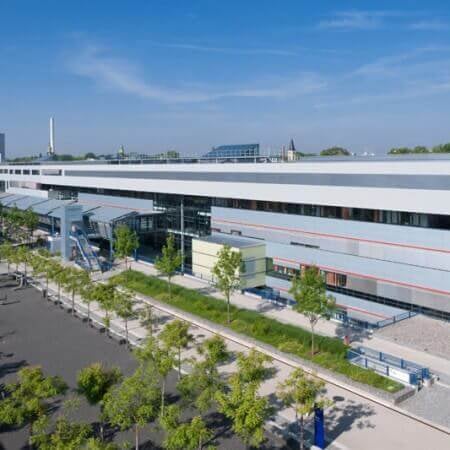
Department of Adult and Pediatric Neurosurgery, Spinal Surgery
The Department of Adult and Pediatric Neurosurgery, Spinal Surgery offers modern diagnostics and effective treatment of the full range of diseases, injuries, inflammatory processes, tumors and malformations of the brain, spinal cord and their meninges, as well as spinal diseases. Spinal surgery is performed in collaboration with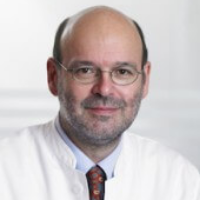




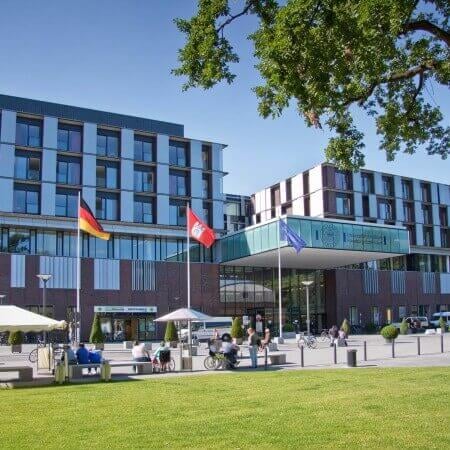
Department of Adult and Pediatric Neurosurgery
The Department of Adult and Pediatric Neurosurgery offers the diagnostics and comprehensive treatment of neurosurgical pathologies, including tumors of the central and peripheral nervous system. The department is the leading Center of Neurosurgery in Northern Germany and is responsible for the implementation of new algorithms fo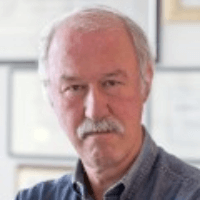




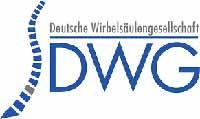

Department of Neurosurgery and Spinal Surgery
The Department of Neurosurgery and Spinal Surgery provides top-class medical care for patients with diseases of the central and peripheral nervous systems. The medical facility performs surgery of any complexity on the brain, spinal cord, spine, and peripheral nerves. The department is the largest healthcare facility of this kin






Department of Adult and Pediatric Neurosurgery
The Department of Adult and Pediatric Neurosurgery offers the widest range of surgical interventions for the treatment of diseases of the central and peripheral nervous system, including stereotactic surgery and endoscopy. With more than 2,400 operations every year, the department has a unique experience, which allows it to prov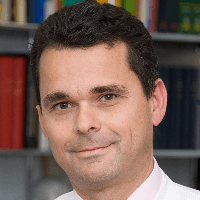





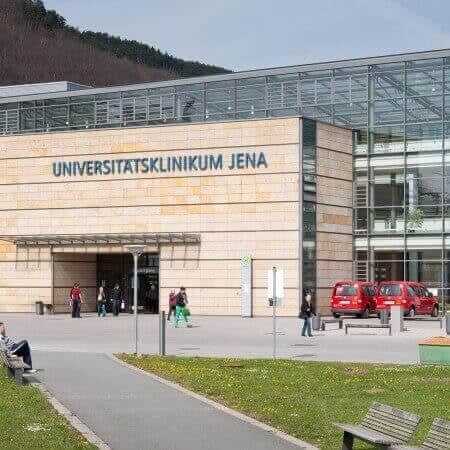
Department of Adult and Pediatric Neurosurgery
The Department of Adult and Pediatric Neurosurgery offers the full range of modern services in this medical field. The high level of technical equipment in the department allows for the performance of all highly specialized surgical interventions to treat pathologies of the central and peripheral nervous system. The clinical pra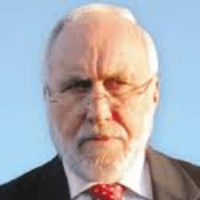






Department of Neurosurgery
The Department of Neurosurgery offers the full range of diagnostics and surgical treatment of diseases of the nervous system. All operating rooms are equipped with the cutting-edge technology, which provides the most reliable and effective treatment of neurosurgical pathology. The department employs competent neurosurgeons with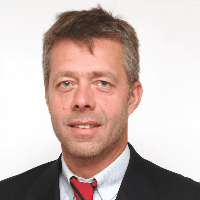



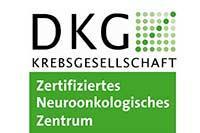
Surgeons who perform surgeries on the central and peripheral nervous system.
Neurosurgery includes open and minimally invasive interventions on the brain, spine, and spinal cord.
Diverse brain and spine pathologies, including tumors, vascular malformations, stroke, congenital defects, etc.
Mostly, in the multidisciplinary University Hospitals (see the list below).
Cost of treatment is individual and starts from €21,095. You can find other prices on the Booking Health website.
The best hospitals in Germany are:
| 1 | Charite University Hospital Berlin |
| 2 | University Hospital Freiburg |
| 3 | University Hospital Frankfurt-am-Main |
| 4 | University Hospital Wuerzburg |
| 5 | University Hospital Bonn |
Today, the best medical facilities in Germany offer effective treatment methods for brain and spinal cord tumours, traumatic brain injuries, brain haemorrhages, peripheral nerve injuries, congenital anomalies of the nervous system, etc.
Thousands of patients a year come to German hospitals. The high demand for medical care in Germany is no coincidence. Neurosurgical problems require meticulous precision in their surgical treatment. This is made possible thanks to both the experience of German neurosurgeons and the high-precision equipment available.
Content
- Why is Neurosurgery in Germany Amongst the Best?
- What Does Neurosurgery in Germany Focus On?
- How are Brain Tumours Treated in Germany?
- Treatment of Spinal Cord Tumours
- The Best Medical Centres in Germany Specialising in Neurosurgery
- The Cost of Treatment in Germany
- Why Undergo Treatment in Germany with Booking Health?
Why is Neurosurgery in Germany Amongst the Best?
Due to the complexity of nerve tissue structure, its sensitivity and its low ability to repair, neurosurgery is one of the most difficult surgical disciplines. Surgical treatment of pathologies of the nervous system require the highest skills from doctors. This is in addition to the use of high-tech equipment, which allows the team of neurosurgeons to perform surgical interventions with maximum precision and efficiency. Interventions on the brain tissue and nerve trunks specifically require the utmost care, extreme precision and professionalism. The consequences of even the smallest mistakes here, can be irreparable. Therefore, in neurosurgery it is important to evolve with technical progress and use the latest scientific achievements and the most advanced technology. This is the hallmark of neurosurgery in Germany.
Today, Germany is considered the European leader for neurosurgery treatment, with its excellently developed health care. German neurosurgeons are highly qualified doctors, who have extensive medical knowledge, practical experience and scientific research under their belt. The demand for medical care in Germany is amongst the highest in the world. This is why, if you place your treatment plan into the hands of a German neurosurgeon, you can be sure to have no worries about the quality of treatment you will receive.
Every year, thousands of foreign patients come to German hospitals hoping to receive high-quality treatment. Here, they receive the medical care required to get rid of severe diseases of the nervous system and cancerous pathologies of the brain and spinal cord.
German medical centres perform neurosurgical operations using state-of-the-art equipment at the stages of both diagnosing neurological disorders and operating on them.
Departments of neurosurgery are present in most university hospitals and many other multidisciplinary German hospitals, including those with private neurosurgical praxis. Neurosurgical hospitals work in close cooperation with rehabilitation facilities. After serious neurological operations, specialised neurological rehabilitation is usually necessary to help patients recover, return to normal life and, if possible, continue their professional activities.
What Does Neurosurgery in Germany Focus On?
The neurosurgeons based at the best medical centres in Germany, provide expert diagnosis and effective treatment, using surgery and radiology methods. This also includes using minimally invasive techniques. The specialists deal with the treatment of the following pathologies:
- Brain tumours (benign and malignant; primary and secondary).
- Brain haemorrhages; subdural hematomas (chronic and acute), epidural hematomas, intracerebral haemorrhage (hemorrhagic stroke), intraventricular haemorrhages, traumatic subarachnoid haemorrhages, arteriovenous malformations, etc.
- Different types of hydrocephalus; aqueductal stenosis.
- Treatment of spinal cord compression (intervertebral hernias, stenosis, instability, fractures, tumours, arteriovenous malformations of the spinal cord).
- Peripheral nerve diseases (carpal tunnel syndrome, tarsal tunnel syndrome, ulnar nerve compression, etc.).
- Symptomatic pain treatment caused by brain tumours (primary or secondary), trigeminal neuralgia, chronic pain syndromes, neurostimulation.
Neurosurgical hospitals in Germany also carry out surgical treatment of the following diseases of the central and peripheral nervous system:
- Nerve tissue injuries and their consequences.
- Congenital developmental anomalies.
- Neurological complications of spinal cord pathologies.
- Diseases of the nervous system with pronounced functional disorders (epilepsy, Parkinson's disease, etc.).
- Circulatory disorders of the brain and spinal cord.
- Pain syndromes associated with lesions of the central and peripheral nervous system.
The peculiarities of neurosurgical treatment also include the necessity of involving health practitioners from various other fields, primarily traumatologists, oncologists and orthopedists, as well as professionals in radiology, physical therapy, and rehabilitation medicine. The special role of rehabilitation medical measures should be mentioned separately. Neurological rehabilitation is an integral part of the treatment process, it allows patients with severe injuries of the nervous system to return to their normal lives.
How are Brain Tumours Treated in Germany?
A brain tumour is any intracranial tumour consisting of abnormal and uncontrollably dividing cells that can usually be found in the brain tissue itself (neurons, astrocytes, oligodendrocytes, ependymal cells, lymphatic tissue, blood vessels), in the tissues of cranial nerves (myelin-producing Schwann cells), in skull bones, the pituitary gland, the pineal gland or spread from tumours primarily localised in other organs (metastatic tumours). Primary brain tumours are usually localised in the posterior cranial fossa in children and the anterior two-thirds of the cerebral hemispheres in adults, although they can affect any part of the brain. There are currently about 120 different types of brain tumours.
The vast majority of brain tumours are treated surgically. Regardless of access, surgery allows for a detailed diagnosis of the brain tumour and an assessment for the possibility of adjuvant therapy in the postoperative period. Surgical treatment of brain tumours also reduces seizure activity in patients with brain tumour-induced, epileptic seizures and reduces or eliminates doses of antiepileptic drugs.
The histological type of a brain tumour is the most important prognostic factor. When examinations fail to determine the nature of the brain tumour, a biopsy followed by a histological examination is mandatory. Adjuvant therapy, such as chemotherapy, radiotherapy or their combination, is often prescribed after surgical intervention, especially for aggressive brain tumours. This is based on the data from the histological examination.
The surgical risk is determined by the localization of the brain tumour, proximity to functionally significant areas of the cerebral cortex and the involvement of vessels and cranial nerves in the pathological process. The general condition of the patient with the brain tumour is another important prognostic factor to consider. Severe cardiopulmonary disease or pathology of other organs and systems may be a contraindication for anaesthesia. In children, early surgical removal of an existing brain tumour may allow the brain to develop normally, a rapid recovery can then follow.
The professionalism and high competency of the specialists at the neurosurgical clinics in Germany are also supported by the most advanced technical equipment and devices for complex surgical interventions. This includes anatomical guidance during the surgery, through advanced computer methods and the use of three-dimensional imaging of CT or MRI images for better navigation during a surgical intervention. This makes it possible to reduce the size of the area to be opened and to establish clearer borders of the brain tumour spread compared to the available images. Operating physicians also have at their disposal an ultrasound device that transmits ultrasound images (in real time) of the brain tissue bordering the brain tumour. Ultrasound often makes it easier to precisely locate the affected part of the brain and can be used to track brain tumour removal. In addition, the neurosurgeons at hospitals in Germany are proficient in removing malignant brain tumours by isolating them with fluorescent material. This makes it possible to remove the brain tumour completely and reliably.
If the part of the brain responsible for the ability to speak is subject to surgical removal of a tumour, this surgical procedure is often performed on patients with local anaesthesia, to keep patients awake. A team of neuropsychologists monitor speech function throughout the operation. This way, the operating physician can perform the surgery without risking loss of or damage to, speech function.
When there is a deep brain tumour, doctors use local anaesthesia and extract a piece of tissue for neuropathological analysis. This procedure gives reliable data which will determine which therapy is selected to treat the deep brain tumour. The same method can be used to reduce the size of a tumour filled with fluid from the inside (cystic).
Treatment of Spinal Cord Tumours
The main method of treating a spinal cord tumour is surgery. The need for surgery is indicated when radiation therapy is ineffective or when the spinal cord is compressed. The removal of a spinal cord tumour leads to the restoration of spinal cord function and the disappearance of the symptoms of the disease.
The surgical technique is chosen depending on the size and location of the tumour. The intervention may be radical (when the tumour is resected completely) or palliative. Radical surgery is possible if the tumour has not invaded the spinal cord and its roots. If the tumour is intramedullary, it is technically impossible to remove it completely without damaging the spinal cord. In such cases, surgery is used to decompress (remove compression) of the brain, restore cerebrospinal fluid circulation and relieve symptoms. Access to the tumour is achieved through the removal of the vertebral arch or by using endoscopic techniques.
The removal of a spinal cord tumour is only possible in specialised hospitals, with appropriate equipment and experienced, highly qualified specialists. Only the use of modern techniques makes it possible to restore the patient's ability to work and ensure that any symptoms of spinal cord compression disappear, including pain, paresis, paralysis, urinary incontinence and sensory disturbances.
The Best Medical Centres in Germany Specialising in Neurosurgery
The best medical centres specialising in neurosurgery in Germany are:
- Beta Klinik Bonn.
- University Hospital Tuebingen.
- University Hospital Saarland Homburg.
- Charite University Hospital Berlin (first choice for patients).
- University Hospital Freiburg.
Why do patients choose the Charite University Hospital in Berlin? This is because the department of neurosurgery at the Charite University Hospital in Berlin has an excellent international reputation in the field of neuro-oncology, spinal neurosurgery and vascular neurosurgery. The Charite Hospital in Berlin is one of the leading hospitals in Germany in terms of scientific developments. This enables it to be able to offer its patients the most advanced treatment methods. The medical facility performs more than 5,000 neurosurgical operations each year. This enormous number of operations has enabled the doctors of the hospital to build up significant experience in these surgeries.
However, if you would like to know which hospital suits your requirements best, contact Booking Health.
The Cost of Treatment in Germany
As for neurosurgery, it is one of the most expensive areas of medicine, since it is associated not only with the most complex surgical procedures but also with risks. With that said, the cost of treatment in Germany varies depending on the type of surgery, the severity of the disease, the duration of surgical intervention, rehabilitation and a number of other conditions.
The cost of treatment in Germany for surgery to cure diseases of the nervous system is also determined by their complexity, the scope of intervention and the level of the hospital and specialist who will perform it. In some cases, the use of special equipment or consumables is necessary, which may also affect the final price. This in turn, is difficult to predict. However, the cost of treatment in Germany usually includes the price for the initial examination, which ranges between 500 and 800 EUR.
Why Undergo Treatment in Germany with Booking Health?
The high quality level of neurosurgery in Germany is confirmed by numerous testimonials, including those from patients with severe, life-threatening diseases of the brain, (e.g. brain tumours) who have been treated in the best hospitals in Germany.
Before the start of your treatment in Germany, we recommend that you contact Booking Health consultants. They will tell you in detail about all of the nuances of having treatment in Germany and the pricing policies offered by various German hospitals. More importantly, Booking Health will help you organise the whole treatment and will deal with any issues that may arise during the organisation process.
Fill in the request form on the Booking Health website to receive personalised information.
Authors:
The article was edited by medical experts, board certified doctors Dr. Nadezhda Ivanisova and Dr. Farrukh Ahmed. For the treatment of the conditions referred to in the article, you must consult a doctor; the information in the article is not intended for self-medication!
Sources: